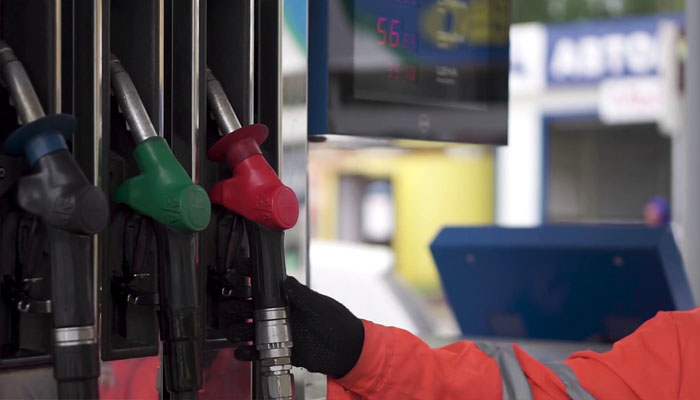Highlights
- Average price of petrol in July was ₦146.80.
- Average price of petrol decreased by 0.9% month on month in July.
- Average price of petrol decreased by 0.9% year on year in July.
- Borno State recorded the highest average petrol price of ₦155.55 in July.
- Oyo State recorded the lowest average petrol price of ₦144.72 in July.
The Nigeria Bureau of Statistics (NBS) has released the Premium Motor Spirit (popularly known as Petrol) Price Watch for the month of July 2018. The NBS report shows that average price paid by consumers for PMS decreased by 0.9% year-on-year and 0.9% month-on-month to ₦146.80 in July 2018, from ₦148.10 in June 2018.
According to the report, the average price of PMS across the zones in the country shows that the Northeast recorded the highest average price of ₦148.17. It was closely followed by the Southeast zone, where consumers paid an average of ₦147.71 for petrol, while the Southwest and Northwest recorded the lowest prices of ₦145.71 and ₦146.71 respectively in the same month of July.
The NBS report revealed that during the month under review, Borno State witnessed the highest average price of the product in July 2018, with ₦155.00. The second state is Taraba, where petrol was sold at an average price of ₦151.82 in June 2018, while Bayelsa State came third with an average price of ₦151.67 in the month of July.
The report also shows that Oyo State has the lowest average price of PMS in July (₦144.72). Closely followed by Katsina with ₦144.06 and Gombe State with an average price of ₦142.79 during the period under review.
Meanwhile, the report released by NBS also shows that the 12 months average prices for petrol was ₦148.5 in July 2017, ₦145.6 in November 2017, and ₦144.5 in September 2017. Other 12 months average prices for petrol include ₦163.4 in March 2018 and ₦150.2 in May 2018.
Implication
This little fall in the prices of PMS could lead to a corresponding small reduction in the operating costs of small and medium scale businesses (SMEs) since they rely on petrol as an alternative source of power. Hence, it may lead to a small increase in revenue for them.
Effects on Stocks
Reduction in Petrol prices could have a negative effect on the revenues (and by extension, on stocks) of companies operating in the downstream oil and gas space. These downstream companies are involved in the distribution and marketing of refined petrol. The companies include Mobil, Conoil, Capital Oil, Total, Oando, Forte Oil, Japaul Oil and Eterna Oil, etc. These companies make money selling PMS. Depending on their share of the volume of sales, their revenues and profits may also drop.
However, for non-oil and gas companies particularly the manufacturing firms in the Industrial and FMCG space, reduction in the price of petrol may positively affect the bottom-lines for these companies by reducing their operating costs. These firms often rely on petrol to power their vehicles as well as a backup for their power, hence, they report all these as expenses.
